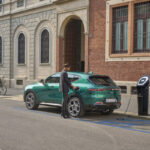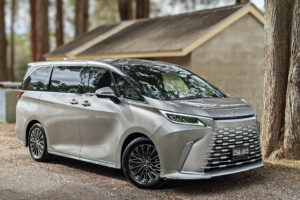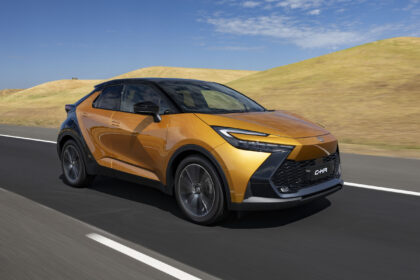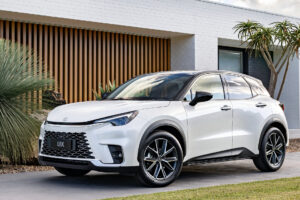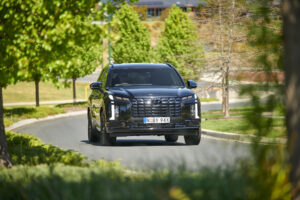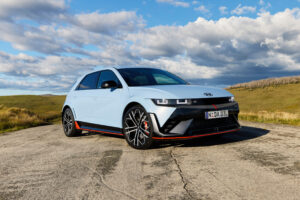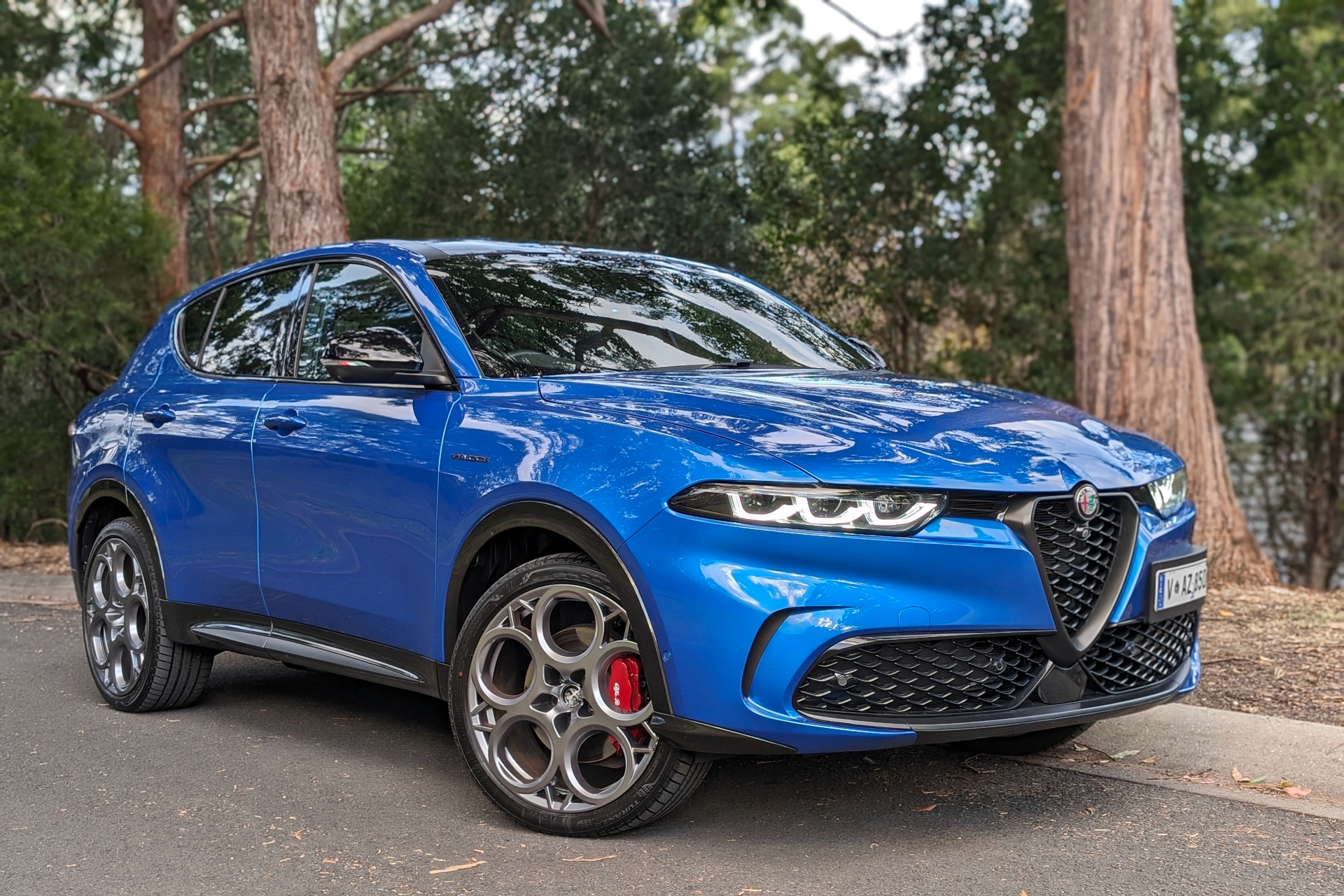
Alfa’s top of the line Tonale SUV is a plug-in hybrid and costs nearly $20,000 more than its nearest stablemate.
For this money, you get a vehicle that can run on electricity alone for a distance of up to 60km
Named after a mountain pass in Northern Italy, it is a little brother to the mid-sized Stelvio – but like Stelvio can seat five.
Tonale sits on the same platform as the Jeep Compass and a re-badged, re-styled version is also sold as the Dodge Hornet in the United States.
STYLING
It’s not surprising that Tonale has quickly become the best selling model offered by Alfa Romeo.
It looks pretty much the same as the Stelvio, but is smaller and therefore cheaper.
Buyers are a fairly predictable lot.
Prices start from $50,900 for the 1.5-litre Ti, $58,900 for the Veloce or $78,500 for the Veloce PHEV AWD. Metallic paint adds $1600; special premium paint $2500.
Both the Ti and better-equipped Veloce are the more common, self-charging hybrids, with drive to the front wheels.
The PHEV as its name suggests is a plug-in hybrid electric vehicle with drive to all four wheels, and can be charged from an external power source.
Standard features include a sunroof, full LED matrix headlights with adaptive driving beam and dynamic turn indicators, Miron dark grille and body kit, privacy glass, Brembo red brake calipers, active dual-stage valve suspension and 19-inch diamond cut alloys.
Inside there’s perforated black leather-accented seats with the embroidered Alfa Romeo logo, dark grey double stitching on the seats and interior accents, aluminium door sills, gear shift paddles and pedals.
The front seats are powered, heated and ventilated and the steering wheel is also heated.
Colours available in Alfa White, Alfa Red, Alfa Black, Vesuvio Grey Metallic, Misano Blue Metallic and Montreal Green Tri-Coat (Veloce only).
Tonale is covered by a 5-year unlimited kilometre warranty, with 5-year roadside assistance. Service intervals are 12 months or 15,000km.
INFOTAINMENT
The PHEV comes with an all-new infotainment system, with a 12.3-inch instrument cluster and 10.25-inch touchscreen, with AM/FM/DAB+ digital radio, satellite navigation, wireless Apple CarPlay and Android Auto and 14-speaker Harman Kardon audio.
There’s also wireless phone charging and front and rear USB A/C ports and 12 volt outlets in the front and cargo area.
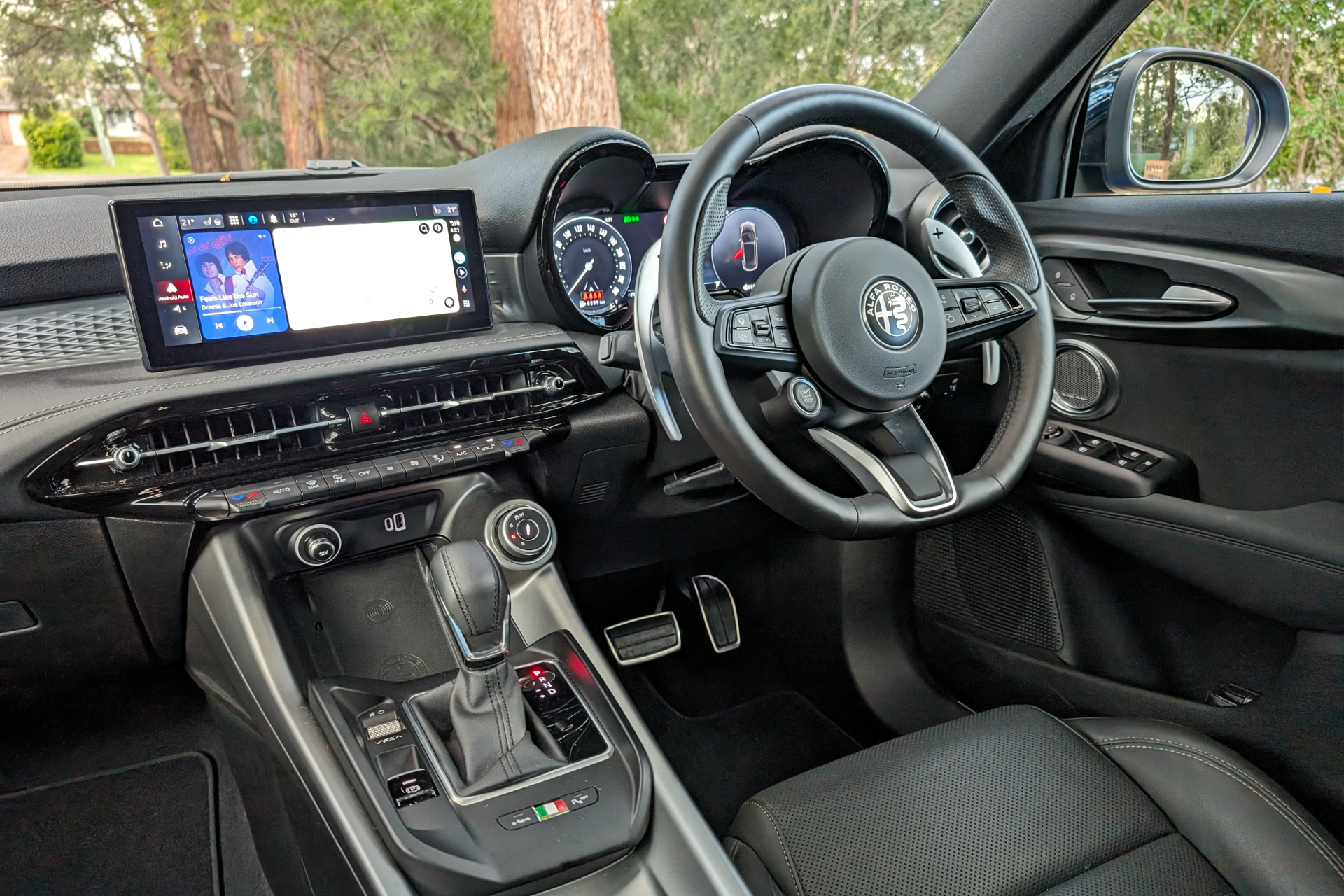
With the My Alfa Connect app users can remotely access their vehicle using their mobile phone, to access services such as vehicle finder and remote operations.
ENGINES / TRANSMISSIONS
The standard 1.5-litre hybrid produces 118kW of power and 240Nm of torque.
Tonale Plug-In Hybrid Q4 combines a 1.3-litre four-cylinder turbocharged petrol engine with an electric motor, with outputs 132kW/270Nm from the engine and 90kW/250Nm from the electric motor — for a combined figure of 206kW.
Transmission in the PHEV is via a conventional six-speed auto, with an odd set up that sees the petrol engine driving the front wheels, while the electric motor powers the rears wheels — effectively providing all-wheel drive.
SAFETY
Five star safety includes six airbags, a rear-view camera and autonomous emergency braking (AEB) with vulnerable road users.
There’s also adaptive cruise control with stop and go, forward collision warning, lane support system (lane departure warning + lane keep assist), driver drowsy detection, traffic sign recognition with intelligent speed assist and tyre pressure monitoring.
DRIVING
The dash from 0-100km/h in the hybrid takes 8.8 seconds, it takes premium 95 unleaded and uses a claimed 5.6L/100km. The PHEV does it in 6.2 seconds and can run on electric power alone for up to 60km (WLTP), with overall fuel consumption rated at an ultra-low 1.5L/100km.
It’s equipped with a 15.5kWh lithium-ion battery, with a 7.4kW on-board AC charger and Type 2 charge port.
This enables the car to be charged at home or at a public AC charge station, and takes about 2.5 hours to fully charge.
It is supplied with a Mode 2 charging cable.
For home charging from a standard powerpoint will need to purchase an additional cable.
There are large shift paddles to facilitate manual gear changes plus four drive modes: Advanced Efficiency, Natural, Dynamic and ESC OFF.
A regenerative braking system recovers energy during passive driving phases (such as deceleration or light braking).
Additionally, the system switches to Natural mode when the battery reaches the minimum charge level regardless of the selected mode.
That’s it for the figures.
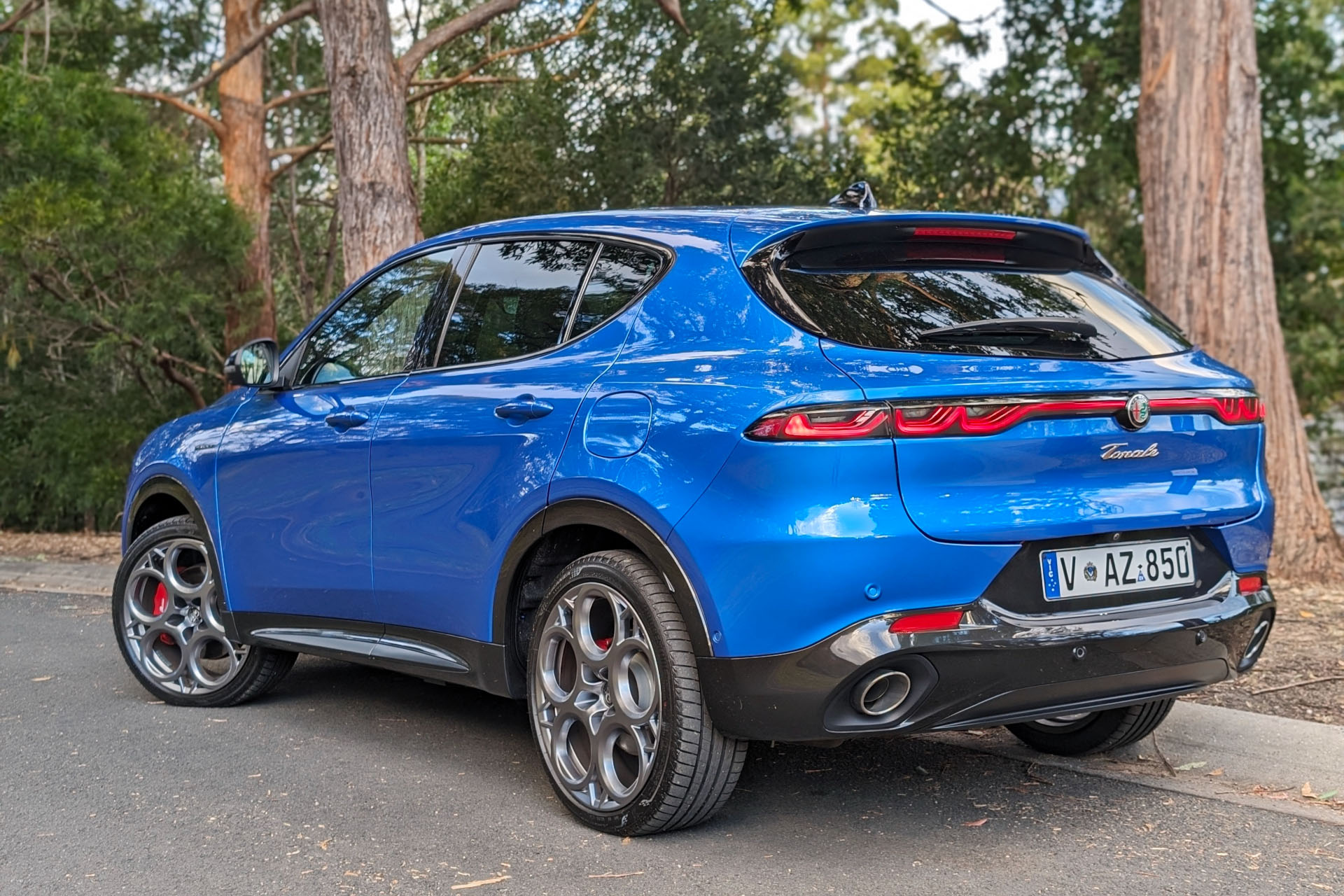
The bit they don’t tell you is that to achieve 1.5L/100km, you have to charge the battery each and every time it is depleted.
Otherwise fuel economy will be more like a conventional vehicle (and it was).
We couldn’t be bothered charging the car and as a result recorded 7.6L/100km after 330km of mixed driving – some of it rather enthusiastic.
That’s still not bad, but not as good as the standard hybrid which returned 6.8L when tested.
Back in October, when we drove the Ti, we found it a little lacking in the excitement department. And initially, after punting the PHEV around the neighbourhood for a day, it felt like we were in for more of the same.
That is until we discovered the magic of the DNA switch and Dynamic mode which brings the car to life.
As we headed down a favourite drive route, the sound of the engine suddenly became apparent and the throttle grew responsive, accompanied by a nice jolt to underline the point.
This was more like it.
The PHEV develops 208kW of power versus the Ti’s 118kW, so you’d expect it to be somewhat more responsive, but bear in mind it weighs another 300kg.
You’d think that once the battery had run out, the electric motor would no longer function, but apparently this appears not to be the case.
According to the system, the rear wheels were still receiving power — from where we’re not sure?
Mind you, the energy recuperated from braking had added 10km of electric range.
Later, with nothing left, the system graphics still showed the rear wheels as active.
Go figure . . .
Tonale is smaller than Stelvio and this shows in the amount of rear legroom and boot space available.
Lithe, young things may find the rear seat generous enough, but the majority of us “full-size” oldies could be cramped.
Either way, it’s a better fit for two people than three.
Up front the driver seat feels snug but comfy, with plenty of lateral support from the bolsters, but the large doors swing closed easily on an incline, threatening injury.
The driver footrest is narrow and angled towards the accelerator, compromising comfort.
The instrument cluster is fully digital and can be configured, but lacks the fireworks of competitors.
Head-up display is conspicuously absent.
The boot is smaller in this model too because of the placement of the electric motor and battery pack.
Luggage space drops from 500 to 385 litres and the space saver spare makes way for a tyre repair kit.
As well as drive modes, DNA also offers different settings for the suspension, with a choice between sport and comfort.
Further investigation revealed Tonale was engineered with a quick steering rack to lift the driving experience.
It also features brake-based torque vectoring and frequency-selective dampers as standard, along with four-piston Brembos for the Veloce.
In Dynamic mode with the suspension set to sport, ride and handling are near perfect.
The car feels solid, grounded and connected, the steering is sharp and responsive and it turns into corners with minimal effort.
A smidgen more brake feel would be welcome though.
Most importantly, it’s fun to drive.
Good job, Alfa.
SUMMING UP
Price considerations aside, PHEVs simply aren’t suited to Australia where a range of 60km is a drop in the ocean.
In Europe, you can pop down the road for coffee in another country, but it wouldn’t be sufficient to get us into the Sydney CBD — let alone home again.
The extremely limited electric range tends to make the whole recharging regime a tiresome, unproductive exercise and one that most people will probably ignore in the long run.
And without religiously recharging the battery, claims of 1.5L/100km are simply pie in the sky.
RATINGS:
Looks: 8
Performance: 7.5
Safety: 7.5
Thirst: 6.5
Practicality: 6
Comfort: 7
Tech: 7.5
Value: 6
Overall: 7
AT A GLANCE
MODEL RANGE
Tonale Ti 1.5L Hybrid, $50,900
Tonale Veloce !.5L Hybrid, $58,900
Tonale Veloce Plug-in Hybrid Q4, $78,500
Note: These prices do not include government or dealer delivery charges. Contact your local Alfa Romeo dealer for drive-away prices.
SPECIFICATIONS:
Alfa Romeo Tonale Veloce Plug-in Hybrid Q4, AWD, five-seat SUV
ENGINE:
Capacity: 1.3 litres
Configuration: Plug-In Hybrid with 4-Cylinder Variable Geometry Turbo Petrol Engine
Maximum Power: 208 kW
Maximum Torque: 270 Nm
Fuel Type: 95 RON or E10 petrol
Energy consumption: 24.1 kWh/100km
Combined Fuel Cycle (ADR 81/02): 1.5 L/100km (but see text)
CO2 Emissions: 34 g/km
DRIVELINE:
6-speed automatic, all-wheel drive
DIMENSIONS, WEIGHT AND CAPACITIES:
Length: 4528 mm
Wheelbase: 2636 mm
Width: 1835 mm
Height: 1601 mm
Turning Circle: 11.5 m
Kerb Mass: 1811 kg
Fuel Tank Capacity: 42 l
BRAKES:
Front: Four-piston Opposed Fixed Calipers
Rear: Single Piston Floating Caliper
STANDARD WARRANTY:
5 years / unlimited kilometres






